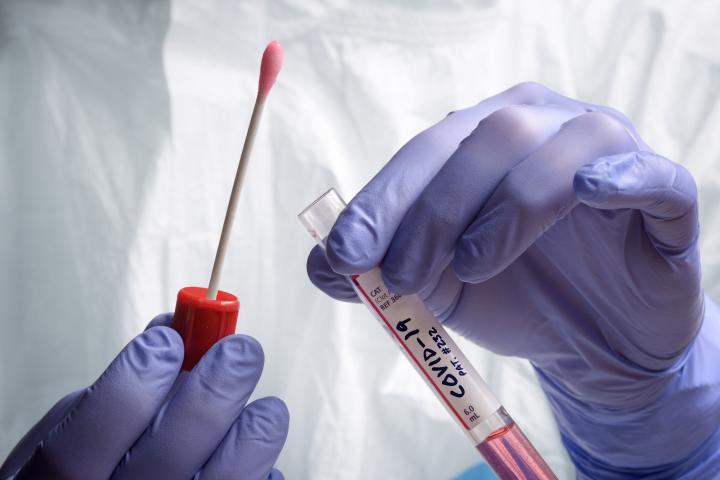Spiralling use of throwaway medical testing kits is having a major environmental impact that must be urgently addressed, experts say.

The researchers have begun talks with manufacturers and medical agencies about how so-called single-use diagnostics can be produced more sustainably.
The team says biodegradable alternatives to fossil-derived plastics should be used to manufacture kits, including those that test for Covid-19.
Thought should also be given to where they are made, the packaging used and what happens to them once they have done their job of diagnosing illness.
Biological sources
Greater use of paper and plastics derived from biological sources could transform the global market for point-of-care tests, which is set to rise from $43 billion this year to $72bn by 2024.
During the Covid-19 pandemic, several billion single-use diagnostics were used each year - on top of 412 million malaria tests, 3 million tuberculosis tests and 2.4 million HIV tests.
Devices, usually made of unsustainable plastics, often need to be incinerated to reduce infection risk, creating an additional release of greenhouse gas and, potentially, other pollutants.
Some diagnostics also contain toxic chemicals, like cyanide derivatives, which are damaging to environmental and human health if not disposed of properly.
Innovation needed
Lead researcher Maïwenn Kersaudy-Kerhoas, of Heriot-Watt University, acknowledges there is already some innovation happening in the field, but more is needed.
"Point-of-care diagnostic tests carry great promise for health, but the pandemic highlighted how much medical waste is produced, and of course, it exacerbated the problem," says Professor Kersaudy-Kerhoas.
"There is an urgent need to find solutions that reduce the carbon footprint of these devices. It's up to engineers, manufacturers and clinicians to work together to make this a priority."
Healthcare transformed
The use of single-use diagnostics, or point-of-care tests, has exploded and transformed healthcare around the world.
Such tests are used in hospitals and GP surgeries, in the field and in people's homes, providing quick and reliable results.
They carry great promise for global health, including meeting urgent needs for testing and diagnosis in places with limited laboratory facilities.
Extreme heat
Researcher Alice Street, of the University of Edinburgh's School of Social and Political Science, says some of these tests need to be incinerated above 800 degrees Celsius.
"They are not designed for under-resourced systems or countries where they can usually be of most use," says Dr Street, who is an expert in diagnostic devices.
"In some areas, they will be placed in municipal waste dumps or burned where the toxic substances within could leach into the ground, or be carried in fumes that are inhaled by people locally."
Professor Kersaudy-Kerhoas and Dr Street are part of an international team of scientists, manufacturers and end-users from Spain, France, Ethiopia and South Africa,
Their research is published in the journal Lab on a Chip.






